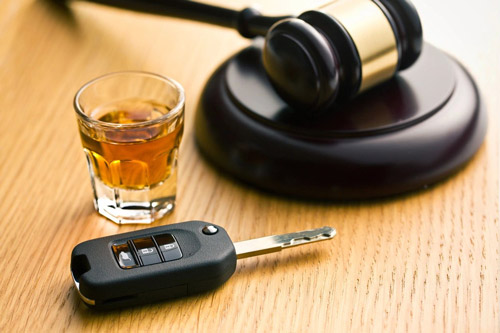Bicycles without motors are not considered vehicles (Tomson v. Kischassey (1956) 144 Cal.App.2d 363; 67 Ops Atty Gen 398 (1984, #84-504); Chong v. C.S.A.A. (1996) 48 Cal.App.4th 285; Annot., Operation Of Bicycle As Within Drunk Driving Statute (1990) 73 A.L.R.4th 1139). While riding a bicycle under the influence of alcohol is a separate crime under CVC § 21200.5, that statute provides that the maximum penalty is a fine of $250.00, a violation is a misdemeanor under CVC § 40000.13(c) and is an alcohol-related offense under CVC § 13202.5, and triggers a one-year suspension for drinking bikers under 21.
Note, however, that in Velasquez v. Superior Court (2014) 227 Cal.App.4th 1471, where the defendant who drove his bicycle with a .28 BAC was charged under Vehicle Code § 23103 per Vehicle Code § 23105 with reckless driving of a bicycle causing great bodily injury. The Court held that a bicyclist is subject to all the same provisions of the vehicle code as are drivers of vehicles under CVC § 21200 notwithstanding the definition of vehicle found in CVC § 670.
Bicycles with motors are usually considered vehicles for purposes of CVC § 670. Thus, a bicycle with a gasoline engine is a vehicle according to the Superior Court Appellate Department opinion in People v. Jordan (1977) 75 Cal.App.3d Supp. 1. In this case, the tiny engine on the defendant’s moped was off and the defendant was pedaling it at the time of her offense. The court pointed out that even though the moped was capable of being operated by human power, it was not designed to be moved exclusively by human power. Jordan also has a long list of what type of vehicles are motor vehicles for purposes of the drunk driving laws.
Some bicycles with small electric motors are not considered vehicles for purposes of the driver’s license laws; but they are still vehicles for purposes of CVC § 670.
A person operating a wheelchair is not driving a vehicle (CVC § 415, CVC § 467, CVC § 14900 amended, CVC § 4011 and CVC § 21114.6 repealed (Stats. 1990, Chap. 400 (AB 2953)).
A “motorized scooter” is a vehicle (CVC § 407.5; and CVC §§ 21220 et seq.) subject to all the traffic laws, including the drunk driving laws (CVC § 21221). In addition, a specific statute outlaws driving a motorized scooter while under the influence of alcohol. (See CVC § 21221.5.)
A “low speed vehicle” is a vehicle, and not a “golf cart” unless operated under CVC §§ 21115 and 21115.5 (CVC § 385.5). It is subject to the traffic laws (CVC § 21251).
Other California authorities on the subject are: 73 Ops Atty Gen 273 (1990, #90-302)—a golf cart is a vehicle; 42 Ops Atty Gen 129 (1963, #63-70)— a tractor is a vehicle; Green v. Pedigo (1946) 75 Cal.App.2d 300—A bulldozer is a vehicle; 12 Ops Atty Gen 28, 32 (1948, #48-139)— an airplane is not a vehicle even though it can, in some instances, be driven on a roadway.
Of course, it is also illegal to operate many of these other devices while under the influence of alcohol or drugs, regardless of whether or not they are vehicles under CVC § 670 (Pub. Util. C. §7818—a streetcar; Pub. Util. C. 7679—a train; Pub. Util. C. §§21407.1 et seq.—an airplane; Harb. & Nav. C. §§655 et seq.—a boat (see §§1:54 et seq.)).
A person riding a horse or other animal on a highway may be driving a vehicle for traffic offenses purposes, including the drunk driving laws (see CVC § 21050; and footnote 3 in People v. Fong (1993) 17 Cal.App.4th Supp. 1). But a horse is not a vehicle for vehicle insurance purposes (Hartford Accident & Indemnity Co. v. Jackson (1983) 150 Cal.App.3d 111). There is no separately defined offense of drunk animal riding. Also see Annot., Horseback Riding or Operation of Horse-Drawn Vehicle as Within Drunk Driving Statute (1992) 71 A.L.R.4th 1129. (See §2:11.4 for more information on the definition of highway.)




